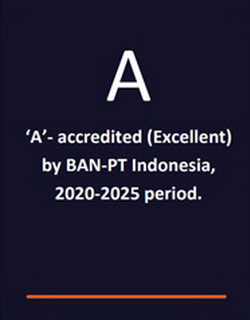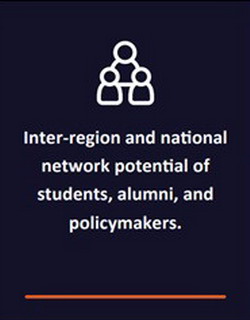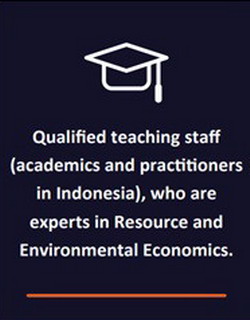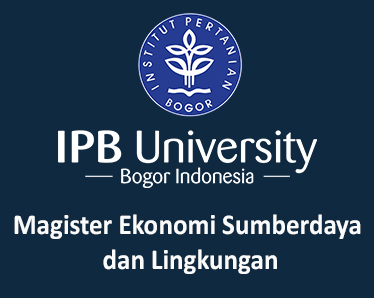
The 1945 Constitution of the Republic of Indonesia (UUD 1945) mandated that its lands, waters and natural resources shall be under the power of the State, and shall be used for the greatest benefit of the people. This indicates the importance of public welfare, which can be accomplished through sustainable utilization and exploration of natural resources. However, at this time, natural resources are still being exploited without taking sustainability into account. This leads to depletion and degradation.
Natural resource depletion occurs in almost all areas of Indonesia. Forests, a vital resource to support living things, are thinning out due to deforestation. As a result, we are facing several risks of hydrometeorology disasters. Mining resources which can support economic development through raw material production and processed product are also inseparable from the negative impacts that arise during the pre-extraction, extraction, and post-extraction processes. Moreover, these circumstances will cause significant economic losses.
Fisheries and marine resources in Indonesia are facing similar issues, especially related to overfishing, such as in the Malacca Strait, Java Sea, and South China Sea. This situation reflects the Tragedy of the Commons phenomenon, as predicted by Garrett Hardin in 1968.
The paradoxical condition between resource abundance and the worst economic outcome (poverty, less economic growth, etc.) in a country is known as “The Dutch Disease” or natural resource curse (paradox of plenty). This phenomenon indicates that there are some failures in the utilization and management of natural resources.. This condition encourages scientists to establish a discipline that focuses on Resource and Environmental Economics.
Resource and Environmental Economics emphasizes the aspect of utilization and management of natural resources and environment, including renewable resources (forests, oceans, lakes, coastal and surface water) and nonrenewable resources (mining and minerals), as well as the impacts of utilization on human well-being.
The AIM Of MREE
Resource and Environmental Economics discuss institutional economics, property rights, governance, environmental services, environmental fiscal policies such as tax and retribution, environmental funding mechanisms, green GDP, environmental damage assessment, sustainable resource extraction, etc. This knowledge is important to solve issues related to the implementation of sustainable development.
IPB University realizes the important and strategic role of natural resources and environment in solving current issues. The paradox of poverty which links economic growth, poverty, natural resource depletion, and environmental degradation has to be solved through updated and appropriate disciplineand knowledge. Therefore, IPB University sees the importance of involving economists and policymakers who are experts in sustainable utilization of natural resources to accelerate public welfare.
In the spirit of escalating knowledge in applied economics as well as responding to the needs of sustainable development, in 2007, IPB University initiated the Master’s Program of Resource and Environmental Economics (MREE). The initiation of MREE is mandated by the IPB Rector’s Decree No.027/K13/PP/2007 on March 22, 2007. Currently, this Masters Program, accredited with ‘A’ level by BAN-PT according to BAN-PT Decree No. 3104/SK/BAN-PT/Ak-PPJ/M/V/2020, has graduated more than 100 alumni.
Graduate Competence




The Excellence of MREE






